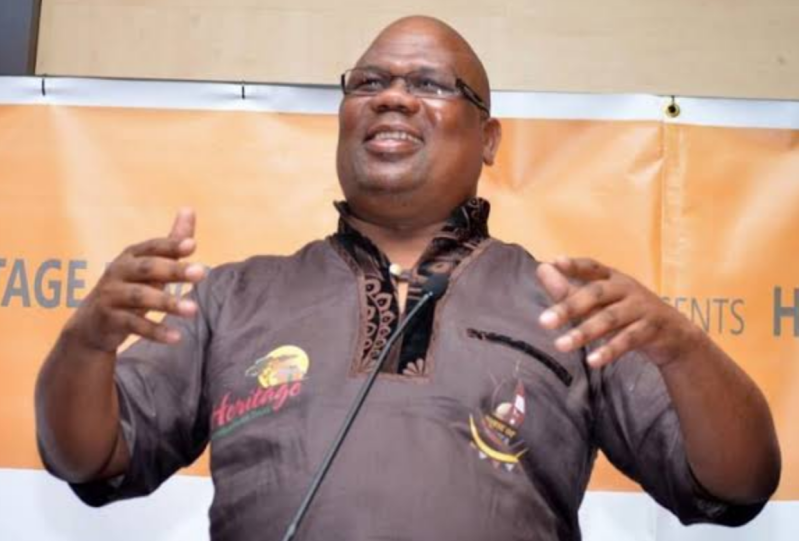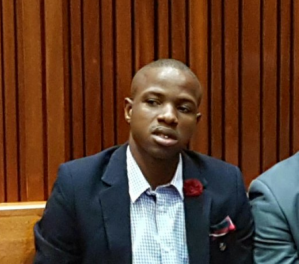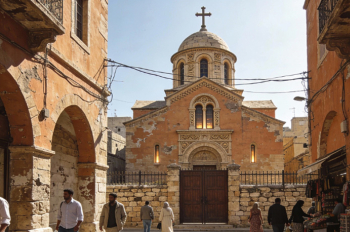
South Africa's Commission for the Promotion and Protection of the Rights of Cultural, Religious and Linguistic Communities (CRL Rights Commission) announced the establishment of an independent committee that aims to ensure the country's religious sector preserves its dignity and maintains order.
The formation of the Section 22 Committee, chaired by religious and cultural expert Professor Musa Xulu, has reignited the debate around regulating religion in South Africa. Professor Xulu described the initiative as "proactive, seeking to avoid disasters and help the Christian faith retain its dignity."
The committee plans to conduct foundational research before operating in full, functioning as a consultation body to produce recommendations. "We promise that once we finish the foundational research, we start the committee in full not as church inspectors but some kind of consultation to come up with a document that will give us recommendations," said Prof. Xulu. CRL Commission chairperson, Thoko Mkhwanazi-Xaluva, indicated that the committee is expected to conclude its work and make recommendations by the end of 2026, with some suggestions potentially forwarded to the National Assembly.
The formation of this committee comes amidst numerous reports of abuse and spiritual transgressions within some churches in the country, the latest being the trial of Durban-based Nigerian televangelist Timothy Omotoso who was acquitted by a South African high court on April 2, 2025. Omotoso and his co-accused, Lsanda Sulani and Zukiswa Sitho, had been charged with 32 charges including rape, human trafficking, and racketeering. The CRL had previously criticized the National Prosecuting Authority (NPA) for its handling of the case.
The Commission's stance, clarified Mkhwanazi-Xaluva, is "not to regulate the pulpit but to restore order in the sector." This renewed focus builds upon the CRL's previous work on the commercialisation of religion, which began in 2017. The CRL, a constitutionally established organ, is mandated to promote respect for the rights of cultural, religious, and linguistic communities and foster tolerance among them.
In 2015, in response to controversial news reports about pastors and concerns about religion becoming a commercial institution, the CRL launched an investigative study into the commercialisation of religion and abuse of people's belief systems. This study involved summoning religious institutions and leaders for hearings across the country.
The 2017 report resulting from this investigation highlighted criminal acts by religious leaders and called for state intervention. It proposed stricter regulation of faith-based organisations. Some of the recommendations included requiring religions to have a religious text of defined or ancient origin and a significant number of followers. It also suggested that religious peer review committees should represent the whole religious community and that general religious practitioners should be licensed.
The CRL proposed amending the CRL Act to enable self-regulation by the religious sector through a structure involving Peer-Review Committees and Umbrella Organisations, with the CRL issuing registration certificates based on recommendations from these bodies.
However, these previous proposals faced significant opposition. Freedom of Religion South Africa (FOR SA), for example, described the CRL's plans as a "serious and existential threat" to religious freedom. FOR SA Executive Director Michael Swain argued that state power to define religious leaders or legitimate organisations undermines a core democratic principle. He pointed to examples in other African countries like Rwanda, Angola, Namibia, Uganda, and Kenya, where state regulation has led to restrictions on religious practice.
Rwanda closed more than 5,600 churches in July 2024 after nearly a third of the inspected places of worship failed to meet legal standards. Rwanda has progressively been implementing a law it passed in 2018 to regulate religious organisations. In Kenya, a task force set up by Kenya’s president William Ruto recommended a hybrid regulation framework that would hand the government greater oversight to curtail the spread of cults and financial predatory practices prevalent in some churches
Critics of CRL's direction maintain that existing laws are sufficient to address abuse and criminality within the religious sector. They argue that criminals cannot hide behind religious freedom and should face the full force of the law, citing the successful prosecution of the Lethebo Rabalago "Prophet of Doom" who was convicted of assault for spraying insecticide on congregants. The real issue, according to this perspective, is the lack of enforcement of existing laws, not the absence of regulation. Concerns were also raised that a new oversight structure could itself become a source of corruption.

Legal scholar Dr. Emma Charlene Lubaale highlighted the risks of regulating religion in South Africa and elsewhere in Africa citing international human rights law, such as Article 18 of the International Covenant on Civil and Political Rights (ICCPR) to which South Africa is a party, which guarantees the right to freedom of thought, conscience, and religion.
This right includes the absolute freedom to hold a belief, regardless of how "bizarre" others may find it, and the freedom to manifest that belief. While the manifestation of religion can be limited, such limitations must be prescribed by law and be necessary to protect public safety, order, health, morals, or the fundamental rights and freedoms of others.
Some argue that some of the CRL's previous recommendations, such as requiring theological degrees or allowing peer review bodies to determine what is "normal" or "unusual" for a belief, could interfere with the absolute right to hold beliefs or unduly restrict the manifestation of religion.
The idea that a religion must have an ancient text could discriminate against newer or non-traditional religions. While the CRL states its recommendations encourage self-regulation, the proposed structure positions the CRL as the final arbiter, which some view as state interference.
The Parliamentary Portfolio Committee on Cooperative Governance and Traditional Affairs (COGTA) previously rejected the CRL's more stringent recommendations in 2018, acknowledging widespread opposition from faith communities. COGTA recommended self-regulation by religious groups, suggesting the adoption of a code of ethics. This led to the creation of a Code of Conduct based on the Religious Freedom Charter, which FOR SA notes had significant endorsement from people of faith.
The establishment of the new Section 22 committee by the CRL Rights Commission signals a continuation of efforts to address issues within the religious sector. However, it remains to be seen how the committee's work and final recommendations by 2026 will navigate the complex balance between protecting citizens from potential abuse and upholding the fundamental right to religious freedom in South Africa, a right vigorously defended by many religious groups and legal experts.






